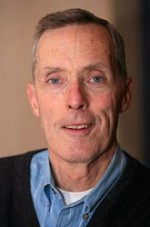A good understanding of the principle of human dignity can be found in examples from new technology. Or from the straight talk of Pope Francis. Both can be equally effective.
“We have begun this culture of disposal where human beings themselves are nowadays considered as consumer goods, which can be used and thrown away,” the pope said in a meeting with diplomats.
Two recent magazine articles demonstrated how technology can lead to either the commoditization of humans or to celebrating their individuality.
One was an article about an automated applicant screening process. In order to obtain a face-to-face interview, applicants first had to submit resumes online, which were entered into a system that matched them to position requirements. An automated email responded with a “thanks, but no thanks” or an invitation to interview. This process is completed with no human involvement.
“The computer told me to take a hike,” said one whose application was declined.
Efficient and effective human resources? Yes, but doesn’t it focus more on the resources than the human?
“Today, people don’t count, money counts,” Pope Francis said in a meeting with young people. “We have to free ourselves from these economic and social structures that enslave us.”
A process that may have started as a well-meaning initial qualification check grew to a process in which the individual was dehumanized, viewed and treated like a production unit.
A good example of treating humans as people — not as commodities — uses technology to create personalized learning. Adaptive learning education is eliminating “the one size fits all” curriculum. A student chooses an answer on a screen. It is evaluated by whether the answer is correct, by the time it took to answer and compares it to the answers of hundreds of thousands of other students.
One technology treats a person as an individual, the other as a unit of production.
Pope Francis has said economic and social problems result from a “gravely deficient human perspective that reduces man to one of his needs alone, namely consumption.”
The pope brings a moral authority into the discussion by focusing on the true meaning of human development.
“Men and women are sacrificed to the idols of money and consumption,” he said. “That some homeless people freeze to death on the street, that is not news. On the other hand, a drop of 10 points in the stock markets of some cities is a tragedy. That is how people are thrown away. We, people, are thrown away, as if we were trash.”
What the pope says is not new, but he says it in direct and contemporary language that is finding great appeal. The economy can treat humans as trash or treasure. It is up to Christians to defend the human person.
—
Kent is the retired editor of archdiocesan newspapers in Omaha and Seattle. He can be contacted at: considersk@gmail.com.




Share this story